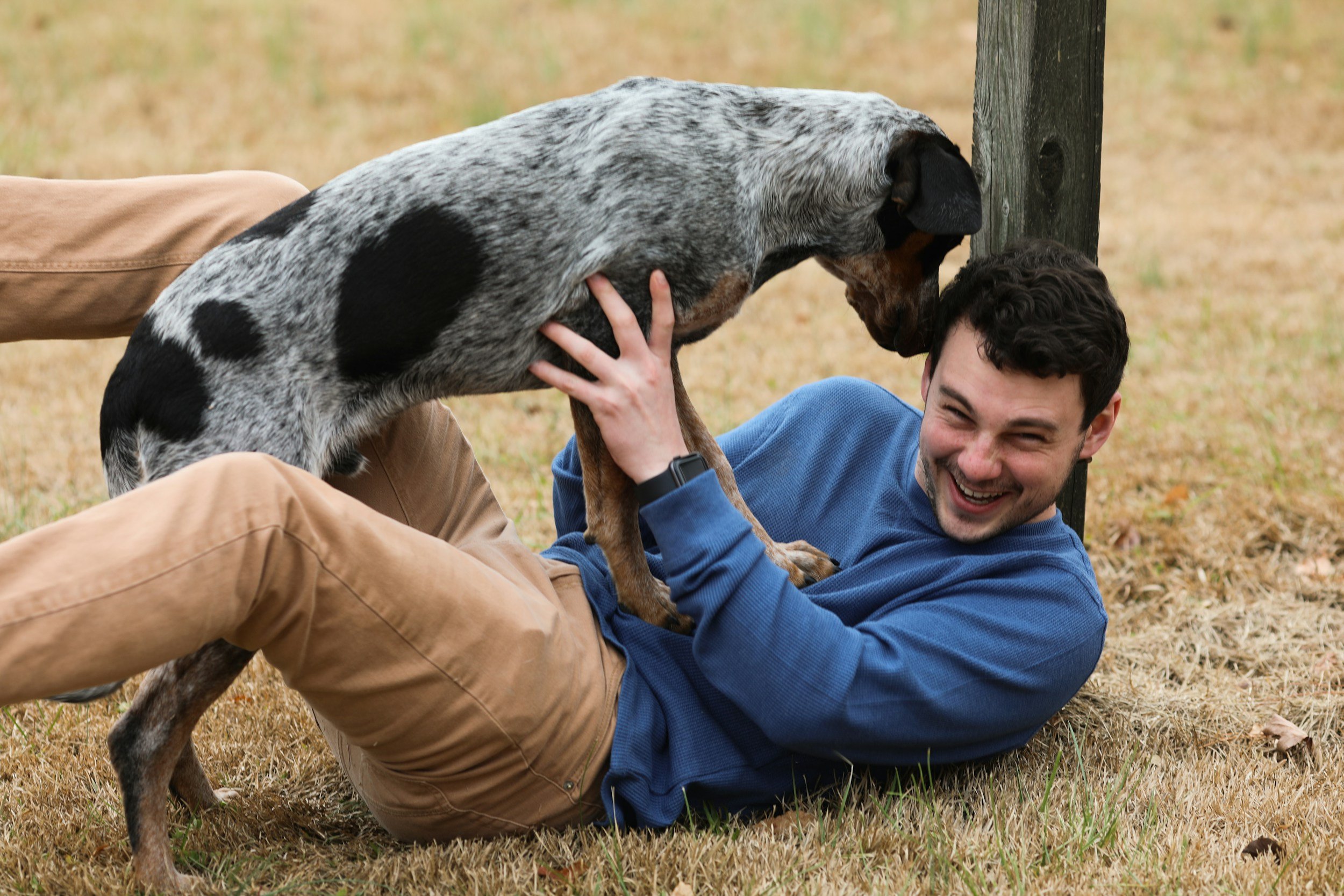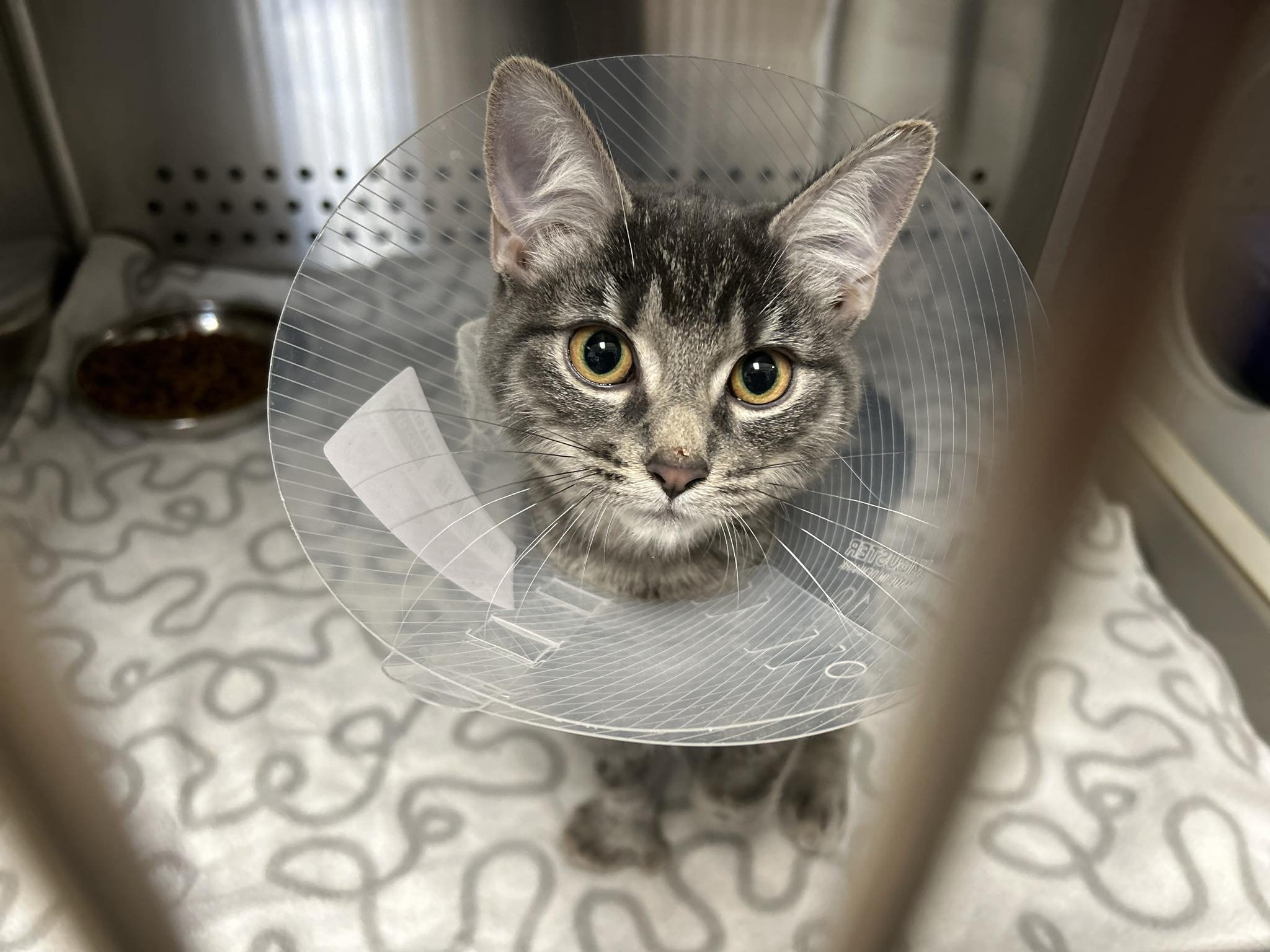
Foster Care Program
Welcome to the Saskatoon SPCA Foster Care Program!
Some pets require a little extra help before they can move on to their forever homes. Our foster care program provides these pets with the temporary homes they need to thrive and grow into incredible adoption candidates. Pets in foster care may be underage, ill, injured, struggling with behavioral issues, or simply in need of a kennel break. Your participation as a foster caregiver can make a significant difference in their lives.
The SPCA provides all basic supplies for your foster animal and all medical care. Foster animals will require regular routine medical appointments at the SPCA during the foster animals for vaccinations and deworming. We also provide an after-hours emergency line in case of an emergency.
Types of Foster Care
Bottle Babies
These are orphaned kittens or puppies that require round-the-clock feeding and care until they are old enough to eat on their own. Once the kitten or puppy is eating on their own, they may find another foster home or remain in care until they reach appropriate age/weight for adoption. (~4-10 weeks)
Nursing Kittens or Puppies with Mom
These families need a quiet, safe space where the mother can nurse and care for her babies until they are ready to be weaned. (~8-10 weeks)
Weaned Kittens or Puppies
These young animals are eating on their own but need socialization and a nurturing environment to grow and develop properly. Many of these animals need to reach a specific weight or age to be ready for adoption. (~2-4 weeks)
Animals with Illness or Injury
These animals require a calm, supportive home where they can recover and receive any necessary medical treatments or rehabilitation. This may include kennel rest, cats/kittens with URI (Upper Respiratory Infection), or other ailments. (2 weeks or more)
Frequently Asked Questions
-
Foster parents need to be a minimum of 18 years or older. Please ensure you have discussed fostering with everyone in your household before applying.
We do not require foster parents to pay for anything while fostering, but there may be travel to and from the shelter for routine appointments. We are unable to assist with travel arrangements.
Foster homes located within a reasonable distance from the shelter are welcome. However, fosters should be prepared to travel for animal pick-up, routine appointments, supply refills, and potential emergencies. It is the responsibility of the foster family to ensure they can accommodate these trips as needed and in a timely manner.
If the foster parent is unavailable for any amount of time during the foster period please advise the coordinator. Foster parents can ask a trusted adult to watch the foster if there are plans to leave the city. The fosters may also return to the shelter or go to another foster home.
All foster options are posted on our Trello page. The link will be provided to approved applicants. You will be able to see photos and information about the animals who require foster care. You are not required to sign up, but we strongly encourage you to utilize it!
-
It is strongly recommended that you keep the foster animal separate from your resident pets for two weeks. The first 48 hours should be used to help your foster animal decompress from the shelter and transition into the new home.
It is recommended to keep foster animals separate from resident pets for the first two weeks. This allows for a smooth transition and ensures both the foster and resident animals have time to adjust. After the two-week period, a proper introduction should be done using the guidelines provided in our handouts to give the animals the best chance at getting along.
It is highly recommended that all resident pets be up to date on vaccinations, spayed or neutered, and have the ability to get along with other animals. This ensures the safety and well-being of both the foster and resident animals, minimizing health risks and behavioral issues during the fostering period. However, if your pet does not meet this criteria, please let the foster coordinator know. This does not automatically disqualify you as a foster home, but helps us make informed decisions for the safety and well-being of all animals involved.
If possible, the foster animal should start in a smaller area or room. Shelter animals may not be accustomed to having such a large space and can be overwhelmed by the major change in environment. So, it is a good idea to start in one area, even if you don’t have other pets at home.
-
The length of the foster period depends on the reason for foster care. Most foster periods are a minimum of 2 weeks. Younger animals will require more time, typically animals need to be a minimum of 8 weeks old and be minimum 1 kg. The foster period typically and ideally ends once the spay or neuter surgery is scheduled. See below for examples and estimates.
Bottle Babies & Nursing Litters (4-10+ weeks)
Underweight Kittens (~2-6 weeks)
Short-Term Illnesses (URI) (~2-4 weeks)
Behaviour Modifications or Injuries (2+ weeks depending on situation)
-
No, unless you want to! We provide all basic supplies including food, toys, litter, kennels, etc., but you are more than welcome to spoil your animal with special toys or treats. If you need a refill on supplies at any point during the foster period, please reach out to the foster coordinator or call our office.
If you want a specific item, ask us if we have it! We get all kinds of supplies donated and we may have what you’re looking for. The SPCA cannot reimburse you for purchases, however, if you purchase an item that you need for your foster that we do not have, we may provide you with a tax receipt with proof of purchase.
-
Absolutely! All animals are spayed and neutered before adoption and once the animal is ready, this will be scheduled by the SPCA with one of our partner clinics. Please see the “How to Adopt” page for more information. Foster parents are also encouraged to find adopters for their animals if possible, but it is not required.
-
Foster animals are not permitted to attend any training or boarding facilities, personal veterinary clinics, grooming services, or public dog parks. All necessary care, including medical attention, must be arranged through the SPCA's approved channels to ensure the safety and well-being of the animals.
The Saskatoon SPCA is opposed to training methods or devices that employ coercion and force. The use of devices and techniques that cause anxiety, fear, distress, pain, or injury, such as choke chains, prong, and shock collars, and physical or verbal intimidation are not supported.
How to Become a Foster Caregiver
It’s easy! Click a link below to fill out an application and become a foster caregiver.
If you have any questions or need more information about our foster care programs, please reach out to our foster care coordinator at fostercare@saskatoonspca.com
Foster an Office Cat
Could your office space use some purr-sonality?
The Saskatoon SPCA’s Office Foster Cat program allows businesses to foster a four-legged employee at no cost!



